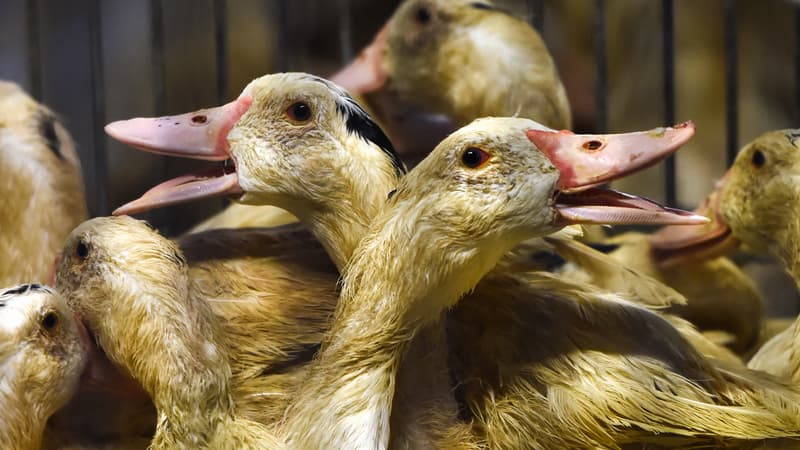Following the start of vaccination of ducks against bird flu in France, the United States, Canada and Japan began to restrict their imports of French poultry, measures with limited economic consequences for the moment.
The highly pathogenic avian flu affected the country of foie gras from 2015 to 2017 and then almost continuously since the end of 2020. After an unprecedented crisis (32 million birds slaughtered since the summer of 2021), the government decided to vaccinate more than 250 ducks, excluding breeding ducks, starting October 1 to try to stop its spread. However, this prevention campaign worries the United States Department of Agriculture (USDA).
Vaccination “can mask infection by the avian flu virus (…) and thus allow the export of infected live animals or products contaminated by the virus to the United States,” the ministry explained in a message to AFP. The country has therefore banned imports from France of live poultry, hatching eggs (intended to produce future chicks or ducklings) and unprocessed poultry meat. Poultry products cooked or cooked to destroy the virus can still be imported with proper documentation, the USDA said.
Bresse poultry and foie gras
Unable to ensure that vaccinated ducks – and therefore potentially healthy carriers of the disease – do not circulate freely within European member countries of the common market, the United States has also restricted imports of live ducks and raw bird products from this country. zone. .
Canada, for its part, has “temporarily” suspended the import of live poultry, hatching eggs and fresh, frozen or raw poultry products from France, while continuing to authorize “heat-treated, cooked or processed canned” products. “. the Canadian food inspection agency said in a statement.
Japan, as expected, also imposed restrictions. The volumes involved at the sector level “are not huge”, says Yann Nédélec. According to French customs, in the category “live birds and eggs”, exports to the United States represented, for example, only 1% of France’s total exports. But products with a very high added value, such as poultry from Bresse to Japan, are affected, notes the Anvol representative.
A virus monitoring device
The restrictions are also problematic for the genetics sector, which includes hatching eggs and day-old birds sent to other farms for the production of table eggs or poultry, the official said, adding that France is recognized for their know-how in rustic strains or organic labels. A virus surveillance system has been put in place, in particular to reassure countries that fear that the virus is circulating quietly on farms, says Yann Nédélec.
For foie gras, a symbolic product of French gastronomy, the situation is especially problematic in Japan, indicated the director of the interprofessional committee of palmipedes foie gras (Cifog), Marie-Pierre Pé: flows to the United States are almost zero and Las Restrictions in Canada only concern raw products. But Tokyo’s decision was expected and “we had taken precautions in advance to be able to serve the Japanese during the year-end holidays,” she said.
Source: BFM TV


